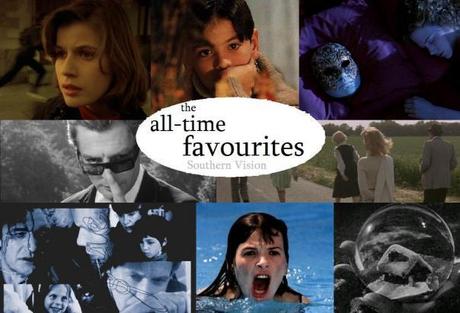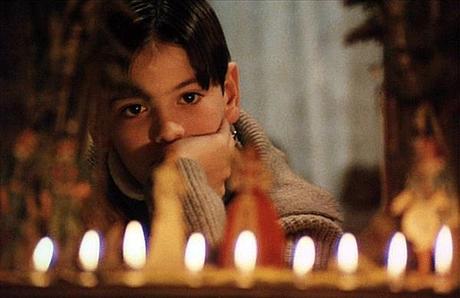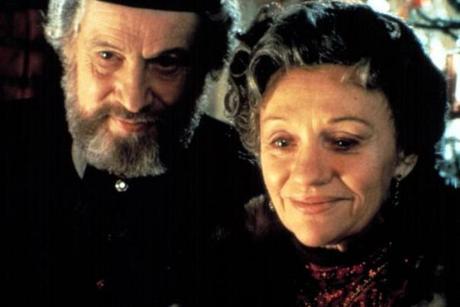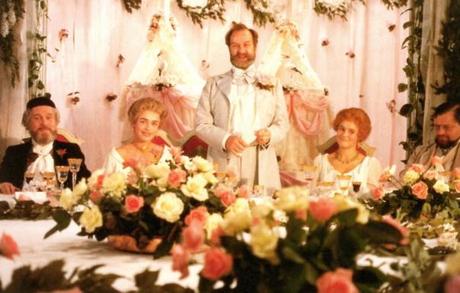
Audiences had been waiting more than 35 years for this. They had sat through some revolutionary cinematic advances, amazing features helmed by the superb Swede Ingmar Bergman. Then it came time for him to retire; he said in the first years of the 80s that his next film would be his last. It wasn’t technically, but it was his last big cinema release, and it earned him his third Oscar for Best Foreign Language Film. Fanny and Alexander was a tremendous achievement, a beautiful swan song, and a masterpiece of cinema. It did not matter who you were, what age you were, where you were… Fanny and Alexander was a film made with love, for you.
There are two versions available: one is the full five-hour version, and the other is the three-hour trimmed version made for cinemas. If you have access to both films, and choose the three-hour one over the five-hour, I believe there is something seriously wrong with you. The full, uncut 312 minute release made for television is, quite simply, one of the finest cinematic achievements of all time.

The story unfolds gradually, with a timely, leisurely pace, as we meet the members of the Ekdahl family. There is the matriarch Helena, who gravely observes how her family are falling apart, but is nevertheless happy to have them together for an amazing Christmas celebration, which lasts the whole first hour of the film, and is not boring for a second. Helena has three grown children, the knowledgable Oscar, the lively Gustav and the sombre Carl. Oscar runs the local theater and has two children, Fanny and Alexander, with his wife Emilie. Gustav cheats on his wife with one of the family’s maids, Maj, promising to give her full ownership of a cafe but gradually losing track of his priorities as he descends into alcoholism. Carl is the worst one. He is bitter, sad, and treats his German wife with contempt, to put it lightly. He hates her, rejecting her attempts to be a friend to him, and pathetically dreaming of a better life without her, where he will find wealth and happiness, the two things which are tragically absent in his life. Gustav and Carl have no children (or if they do, they don’t play an important part), but Oscar does, and it is his two, the titular characters, who lead the story. Things really kick into gear when Oscar dies, and Emilie marries a hardened, cruel bishop whose stony face remains emotionless during all his scenes. He’s too ignorant to realize how evil he is, and inflicts his brutal goodness on his new wife and step-children, who regard him with contempt, and pray each night that he will die horribly.
The absence of Bergman regulars here does not mean the film will alienate fans of his previous casting choices. Sure, there is no Liv Ullmann or Max von Sydow or Bibi Andersson, but there is Gunnar Björnstrand, Harriet Andersson and Erland Josephson, who all give great performances in their supporting roles. For the lead roles, Bergman has chosen some new faces, but all of them give raw, powerful performances, especially Jan Malmsjo, an actor previously familiar with comedy films, who plays the evil bishop Edvard Vergerus brilliantly. Also notable for their roles are Gun Wallgren as Helena and Jarl Kulle as Gustav, two complex roles that are absolutely knocked out of the park by the actors.

However, there is one Bergman regular here, but he’s not a cast member. He’s played a key role in all of Bergman’s films since the early sixties, and has gained popularity for his work on films across the world since. Can you guess who he is? That’s right, it’s Sven Nykvist, a man who I’m proud to proclaim the best cinematographer who ever lived. Nykvist, who shot some of Bergman’s greatest pictures, including Persona and Cries and Whispers, makes Fanny and Alexander one of the most marvelous films to watch. Every frame is pure beauty; Nykvist makes it so by carefully positioning his camera to monitor all the action, and sweep majestically through magical moments and scenes, helping to make a film which is already stunning to watch even more beautiful.
In the full version of the film, the story unfolds in five acts, beginning with the Christmas celebration, then moving to Oscar’s final days, as we see him perform in his beloved theatre, then his funeral and Emilie’s marriage, to the film’s startling shift from the stunning Ekdahl reference, to the cold prison environment of the bishop’s house, before the children are rescued and taken to a place more magical than any Bergman fan could ever dream of.
The scenes in the theater during the first and second acts are fantastic. They are especially notable for the presence of Gunnar Björnstrand, the actor who appeared in more Bergman films than any other. Sadly, this would be the last time he would work with Bergman, as he died only a few years after the film was finished. In the astonishing 110-minute behind the scenes documentary featured in the Criterion box set, we see first hand how Björnstrand’s illness had affected his performance. He struggles many times to get one scene right – an incredibly moving scene shows him messing up his lines but being told by a saddened Bergman that he was doing a good job. Everyone seemed aware that Björnstrand’s illness was mentally crippling him, and there is an immense sadness in some of these making-of scenes that feature him. Sadly, most of his scenes are cut from the three-hour version.

But it seems only right that Bergman would include his good friend Gunnar Björnstrand in these theater chapters, as these scenes are the ones that were closest to Bergman. As aficionados of the director will know, Bergman worked in theater before he became a filmmaker, and looks back on his experiences with fondness and love. However, the surreal beauty of the stage is cut short when Oscar dies, and Emilie is forced to shut the theater down. This moment is cut from the three-hour film, which I don’t understand, because I see it is a truly momentous, important, grave moment; when the theater closes, a part of the film’s liveliness dies. And the arrival of the bishop threatens to completely eradicate any more fun; Bergman uses tactics like this to signal to the audience how truly despicable he (the bishop) is, and they work. As the film progresses, the bishop gets stronger, and more powerful. If you’ve seen either version of the film, you’ll remember the haunting scene in which he canes Alexander repeatedly; the sickening snap of flesh as the stick of wood strikes the boy is a sound I’ll certainly be unable to forget. But an even more important scene for the bishop is yet another moment cut from the three-hour version. It sees him being confronted by Gustav and Carl, as they attempt to convince him to let the children and Emilie go. The methods to which the bishop goes to shut them up, I’ll leave for you to discover.
And that brings me to another critical thing about the film’s brilliance: it only goes to show what a genius Bergman is that he could craft one of the most joyous, exciting and fun celebrations with lively and beautiful characters in the same movie that features some of those characters being locked up and mistreated by a man who is arguably one of cinema’s most chilling villains.
Yes, Bergman’s five-hour film has it all. It is an amazing, thrilling look at the life of not just two children, but three generations of one of cinema’s most beloved, delightful families. In one single film, we experience the triumphant moments of success and joy that life brings, as well as the ugly, violent encounters all of us experience at some point. It is a film which doesn’t lie, doesn’t dramatise, but simply exists to tell, like a children’s storybook, a fairytale of one family’s gentle dance through the casualties of life, the beauties of existence, and the magic of childhood.

That’s this week’s All-Time Favourites review. Remember, there’s a new one of these each week, of one of my favorite films, so stick around for more! Next week’s film: 2001: A Space Odyssey.

